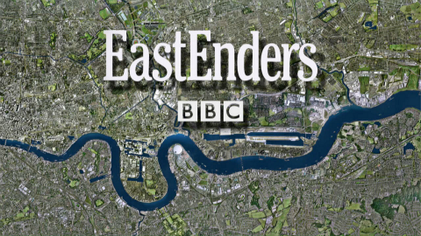Endometriosis storyline to air on EastEnders this week
After tragically suffering a miscarriage, Ruby undergoes further testing in tomorrow night’s episode of EastEnders (Thursday, 25th March) and it is suggested by her gynaecologist that she has endometriosis.
EastEnders has worked closely with Endometriosis UK throughout the storyline and as it unfolds over time. Endometriosis is a widely undiagnosed condition; taking on average 8 years to diagnose. It affects 1.5 million women in the UK or 1 in 10 women from puberty to menopause, although the impact can be felt for life.
It is a chronic and often deliberating condition that can impact a person’s life in numerous ways including pelvic pain, painful irregular periods, bowel and bladder related problems, painful sex, depression and infertility. Not only can the disease worsen if it goes untreated, but the condition can also have a huge impact on someone’s career, relationships, and mental health.
Over the next few months, Ruby and Martin will be learning to live with the condition, and will sadly experience some of the heart-breaking consequences of endometriosis, while shining a light on the condition and raising awareness.
Faye Farthing, Communications and Campaigns Manager for Endometriosis UK said, “It’s a huge step forward to see EastEnders tackle endometriosis head on, a UK soap first that will no doubt help end the stigmas associated with the condition. We’re delighted to have been working closely with EastEnders on this story, and hope it will go a long way in removing the taboos and help anyone experiencing symptoms feel empowered to seek help – as latest statistics show 64% of women aged 16-24 have never heard of endometriosis and 80% would put off going to the doctor with symptoms.”
While Ruby's story is raising great awareness for endometriosis, we acknowledge that some of you may find the storyline distressing. Our support services are here for you if you need them. Our helpline is open at the following times this week:
Wednesday 24th March - 7 pm - 9 pm
Thursday 25th March - 2 pm - 4 pm and 7 pm - 9 pm
Friday 26th March - 9 am - 11 am and 5 pm - 7 pm
Saturday 27th March - 3 pm - 5 pm
Sunday 28th March - 10 am - 12 pm and 7 pm - 8:30 pm
Facts on endometriosis and fertility
View our FAQs and information on fertility and endometriosis here
Further information
- Endometriosis does not necessarily cause infertility but there is an association with fertility problems, although the cause is not fully established. Even with severe endometriosis, natural conception is still possible. It is estimated that 60-70% of women with endometriosis can get pregnant spontaneously.
- Due to a lack of research, the links between fertility and endometriosis are not fully known. In some cases it may be because the disease distorts a woman’s reproductive organs.
- The main factor affecting fertility for any woman is her age. A woman is born with a lifetime supply of eggs that undergo maturation monthly once she has reached puberty. Fertility rapidly declines after the age of 38 both due to the rate at which the egg sacs disappear from the ovaries accelerating and due to increased rates for miscarriage and chromosomal abnormalities.
- For those with endometriosis who do experience fertility issues, a proportion will get pregnant after medical assistance, either surgery to remove endometriosis or through assisted reproduction technologies (ie IVF).
- Sadly, miscarriage is a common problem in all pregnancies, regardless of whether or not you have endometriosis. Miscarriage occurs in around 1 in 5 pregnancies, and if you have endometriosis, the risk increases to around 1 in 4.







